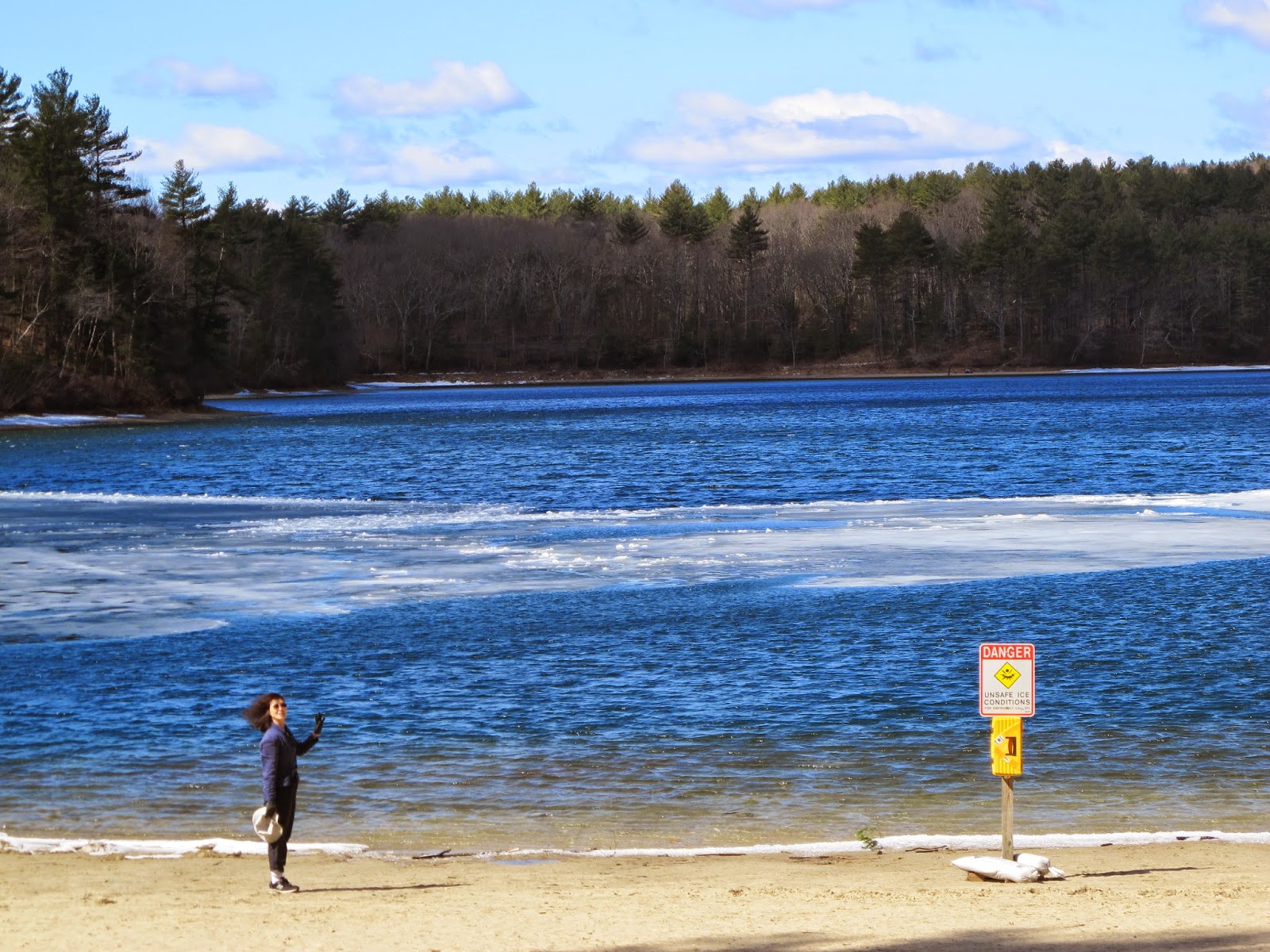Posted by Richard B. Primack
"This pond …. indicates
better than any water hereabouts the absolute progress of the season, being
least affected by transient changes in temperature." -Thoreau, Walden, p. 324
On April 4, ice still covered almost all of Walden Pond,
except for an open strip of water along the edge. The ice continued to melt
over the next five days, still covering most of the pond.
By April 11, the ice covered only a small percentage of the
pond. After two more days, the pond was completely ice-free.
Ice-out has long been a favorite sign of spring, a way to
mark the transition from winter ice skating and ice fishing to summer swimming
and boating. Concord is home of one of the most iconic of these sentinels of
spring— the date of ice-out on Walden Pond.
Henry David Thoreau recorded the ice-out times at Walden
Pond from 1846 to 1860, and modern residents have continued this tradition.
Walden Pond is a sensitive indicator of seasonal temperature; ice-out occurs
earlier in springs following warm winters and later in springs following cold
winters. According to the Blue Hill Observatory, the country’s longest-running
meteorological observatory, the average winter temperature of 2015 was the
coldest in the Boston area since 1934, and this winter broke the record for the
most snowfall.
This year ice-out at Walden occurred on April 11—that is, on
that date the pond was 90% ice free—the latest ice-out date in the past 20
years. According to observations made by naturalist Steve Carlin, and posted on
the Journey North website, from 1995 to 2014 ice-out at Walden Pond has varied
from as early as January 29 in the record-breaking warm winter of 2012 to as
late as April 5 in 2005 and April 4 in 2014. In Thoreau’s time, ice-out
averaged about two weeks later than in recent decades, varying from March 15 to
April 18 and reflecting the colder climate of his time. So although Thoreau
might not have been surprised by this year’s ice-out date of April 11, present
day Concordians should regard this as an unusually late year for our modern era.
Concord’s cold winter of 2015 was made even more exceptional
by how sharply it contrasted with the warm winter throughout the rest of the
world this year. The National Oceanic and Atmospheric Association announced last
month that the global average winter
temperature in 2015 was the warmest since records began in 1880. But as we
experienced first hand in eastern Massachusetts, a warm globe does not mean it
is warm everywhere. The northeastern United States was among the only places in
the world to experience a colder-than-average winter in 2015.
The rest of the Northern Hemisphere got an exceptionally early spring this year, as expected in our warming world. Meanwhile, we have a chance to enjoy our much rarer event, a spring reminiscent of the colder springs of Thoreau’s Walden and Concord.
The rest of the Northern Hemisphere got an exceptionally early spring this year, as expected in our warming world. Meanwhile, we have a chance to enjoy our much rarer event, a spring reminiscent of the colder springs of Thoreau’s Walden and Concord.


No comments:
Post a Comment